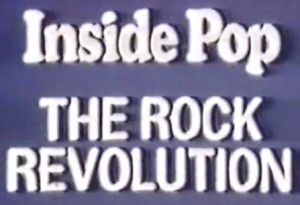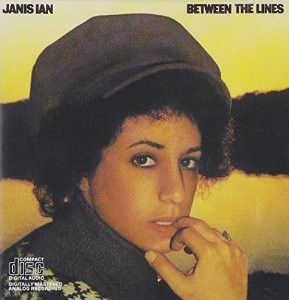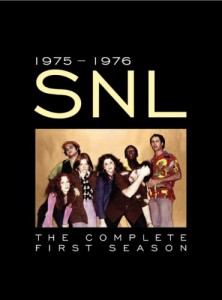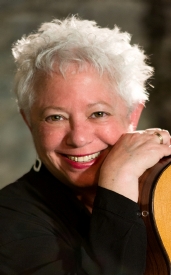Folk music icon Janis Ian first made her mark with the hit song “Society’s Child” about the challenges facing an interracial couple. Remarkably, this was written when she was only 14 years old, and became a hit in 1967 after it was featured on a TV special hosted by Leonard Bernstein. An even bigger hit for Ian came in 1975 with “At Seventeen”, a song about not fitting in that almost anyone who was a teenager can relate to. Other acclaimed recordings have appeared over the years.
This interview was for a preview article for her concert on 4/29/15 at the Maverick Saloon as part of the Tales From the Tavern concert series. It was done by phone on 4/15/15. (Lloyd Baggs photo)
Jeff Moehlis: What can we look forward to hearing at the upcoming Tales From the Tavern concert?
Janis Ian: Tales From the Tavern – God, I love that place. But it’s going to be a bittersweet show. Tom Paxton’s retiring this year, and we’ll have finished our last show together on the 26th at the Freight and Salvage [in Berkeley]. So Tales From the Tavern will be my first solo show this year. I’m only doing four total. So it’ll be a little bittersweet, but it’ll also be fun because I really, really like that venue. I’m actually going there at my own request [laughs]. It should be good.
I’ve started incorporating a couple of new songs into the show. I’m starting to think about starting a new record. I’m taking requests, because I’ll be solo. I expect a pretty relaxed, funny evening, interspersed with moments of deep depression [laughs].
JM: Well, that’s what we’re looking forward to!

If you don’t mind going back in time, I find it fascinating that you started out having success at such a young age with the song “Society’s Child”. How did that song come together, especially with you being so young at that point?
JI: Oh, Jeff, if I knew how those things worked I would bottle it. I have no idea. I think that there’s a reason that most of the artists I know are pretty humble. I mean, that sounds gratuitous, but I think in general we’re a pretty humble bunch. And I would include journalists in that, too. It’s not something that we learned. We perfect it, and we worked really hard at it, there’s no doubt. But it’s not something that we do anything to get. It’s been handed to us.
So I always look on it as a very happy accident that I was born into the right time for my talents, with the right talents for the time. And that I have the energy to use the talent, the good fortune to be born into a family that respected this sort of talent, because God knows that there are families that don’t. There’s so many variables that could go wrong with something like this that it’s a miracle to me that anybody ever gets anywhere. That being said, I was born, apparently, with a lot of drive and desire to make music. I don’t remember ever not wanting to make music as my life. So I can’t really look at it as anything extraordinary, because it just always was.
JM: How did having success at such a young age affect you?
JI: I think it’s a plus and a minus. It’s a plus in that you learn very quickly who not to believe, and that the whole thing is basically one big crock of shit. You also learn that you can be beat up pretty badly and still come out walking, and I think that’s a valuable lesson at any age.
JM: Another question about “Society’s Child”. Shadow Morton was the producer for that song, and he’s always seemed to be an intriguing figure to me. What was it like working with him?
JI: It’s not for nothing they called him “Shadow”. You know, he was an extraordinary fellow. I don’t know why, to this day – and I asked him the last time I saw him before he died, I said to him, “Why did you let me run the session?” Because he basically put me in the studio and said, “Here are some great musicians. Tell them what you want.” And then he went into the control room. I mean, he came back out when I asked him to, and that was it. If you think about it, I was 14 and a half, or 15, and I’d never been to the studio, and he trusted me absolutely. I don’t know where he got that. I asked him and he said, very mysteriously, “I knew.” That was very “Shadow” to say, “I knew.” [laughs] You weren’t going to get anything else out of him.

JM: “Society’s Child” got a lot of exposure from being on the Leonard Bernstein TV special [Inside Pop: The Rock Revolution, broadcast in April 1967]. Did you realize at the time how big of a deal that was to be on that show?
JI: No. I think my parents understood that, but I certainly didn’t. To me it was pretty cool to be on TV. I thought that was great, but beyond that it didn’t occur to me. That was when we only had seven channels in New York, five in most of the rest of the country. On a Sunday night to be featured for that long, it just didn’t compute. I wasn’t thinking about it. He was very kind to me.
JM: Did you know who he was?
JI: Yeah, I mean he was Leonard Bernstein. It’s funny, because it all goes around. I wound up studying with Stella Adler, whose daughter was married to David Oppenheim, who was Bernstein’s producer. And I now work with the Stella Adler School in New York, and Stella’s grandson Tom Oppenheim, who is David Oppenheim’s son.

JM: It’s the 40th anniversary of your album Between the Lines, which is arguably your biggest one. What are your reflections on that album, looking back?
JI: It was great. We knew that it was something special when we were making it. In fact, Brooks Arthur – the producer – and I tried to get more funding so that we could cut another six or seven songs, because we felt like something really extraordinary was happening in the studio that we wouldn’t be able to repeat. Unfortunately we couldn’t get the funding, so there you go. But it was a joy, because the musicians were so into it. I mean, they were just having a big time, and that’s also so unusual for the musicians – the studio guys – it’s unusual for them to get excited, but they did, which was great. I feel very lucky that I got to make that record. I think it’s a really outstanding record, sonically, too. Brooks was doing things that people still aren’t able to do.
JM: Of course, that has your song “At Seventeen” on it. How did that song come together?
JI: I was staying with my mom because I was broke, and I was waiting for an advance so that I could buy some clothes and go out on tour, and get some guitar strings and stuff like that. I was reading The New York Times, and there was an article in there where a woman said that she had learned the truth at 18. She had thought that when she came out as a debutante everything was going to be fixed, and her life would be perfect. And of course it wasn’t. And I just took it off from there. It took a long time. I was nervous writing it. It’s not an easy song to sing, let alone write.
JM: It’s a pretty universal theme, but was it also autobiographical?
JI: Yeah, I don’t think you could write a song like that without it being autobiographical. I can’t imagine that.
JM: You were already quite successful at that point, so it’s interesting to hear that perspective. But I guess that’s the way it is when you’re growing up.
JI: Yeah, nobody thinks that they look good. I mean, nobody. That’s a horrible age, really.
JM: It’s good for people to realize that everyone else feels that way.
JI: I think that’s one of the strengths of that song, and I think that’s one of the reasons it has lasted.

JM: It’s also the 40th anniversary of Saturday Night Live, and you were a musical guest on the very first episode. How did you get that gig, and what was that experience like?
JI: I got it because they called. I assume that they spoke with my manager. I don’t remember a lot of it except that I had strep throat, and they flew me in on a private jet that morning. We took a red eye because I had a gig the night before that I couldn’t bail on. So I wasn’t there actually for the rehearsal or any of that. I would imagine there were pretty nervous about me. [laughs] I was just trying to keep from screwing up my voice.
JM: I enjoyed reading your article called “Monumental Mistakes”, where you talk about turning down the offer to write the music for The Graduate, and turning down a spot at Woodstock. In hindsight I can imagine you might be thinking, “Oh man, wouldn’t that have been great!” But in your defense, you must’ve gotten a lot of other offers that turned out to be duds, right?
JI: Sure, sure. But you have to take risks, otherwise there’s no fun to it.
JM: Do you have any regrets about turning those sorts of things down?
JI: No, no. I mean, I think Paul Simon did a great job on The Graduate, much better than I would’ve done. Woodstock, if I would’ve known that you could’ve gone after and still be in the film, like Joni [Mitchell] and people like that did, then that would’ve been a different thing [laughs]. But it never occurred to me that people would do that. Otherwise, no I don’t have any regrets. I have a pretty good life. I like my life.

JM: You wrote an autobiography that came out in 2008. In the process of writing that, were there any surprises about yourself or otherwise that you learned?
JI: Yeah, I was surprised at how focused I had always been on music. I mean, from the very first time I wrote in my little journal I wrote about music, and I wrote about wanting to use words and wanting to play with words. I was surprised at how much that theme recurred, how often, and how strong it was. Because even though I say I always wanted to do music, I don’t think back to when I was 9 years old, or when I was 13 years old writing about how can I become a better writer, and why don’t I write better right now. Stuff like that, you don’t think about.
JM: What advice would you give to an aspiring songwriter or an aspiring musician?
JI: If you don’t have to do it, don’t. Don’t do it to become famous, because the world is really working against you. If you can’t not write, then you should be a writer.
Otherwise, the only other piece of advice I would give is don’t trust anybody. Don’t trust anybody with your talent, don’t trust anybody with your money. Because at the end of the day it’s going to be your name on the book, or your name on the album cover, and those people are going to be able to leave.
JM: You may not want to revisit this, but since it’s Tax Day, the last part of your answer makes me think of how you got screwed by your accountant and owed a lot of back taxes.
JI: The way I look at it, I put two of his children through Princeton. That’s along with the regret thing. You can’t live regretting things like that – you’ll make yourself crazy.
JM: You mentioned that you might be putting a new album together. What all is in the works? What can we look forward to in the future?
JI: I was going to take a year off and write this year, and then Tom Paxton announced that he was retiring in November. So I said, there went my spring. I wanted one last crack at being on the road with him. I think that what we’re doing is really extraordinary. It’s very unusual in the folk world, and even in the pop world, for two colleagues to get onstage together and sing each others’ songs, and spend about 90% of the show together. It’s really extraordinary.
Then this California run is my last run. I have one other obligation, then that’s it. I’ve been turning down everything else. So I’m going to be staying home and writing, hopefully another album. And writing some fiction that I’m working on. I’m putting together a collection of some of my articles, stuff like that. I’ll hopefully be able to keep the wolf from the door long enough to do that. [laughs]
JM: I didn’t realize that you’re doing so few solo shows this year.
JI: I’m doing exactly four.
JM: Well, California’s not such a bad place to visit.
JI: I love California. I’ve had family there for years, and I’ve got all kinds of friends there. We’ll have fun.
JM: Where are you speaking to me from?
JI: I’m in Nashville, Tennessee at home, trying frantically to get my laundry done and repacked in time for the van to pick it up tomorrow morning.
JM: Regarding Tom Paxton – am I correct that you go way back with him?
JI: I do. He was at my first show ever when I was 13 in New York City.
JM: Did you get any feedback from him?
JI: Well, I didn’t know about encores, and I got an encore, but I was rushing back to my seat to make sure that I didn’t annoy anyone. So the first thing I ever heard out of his mouth was, “Go back, you idiot. You’ve got an encore!” [both laugh]


Discussion
No comments for “Interview: Janis Ian”